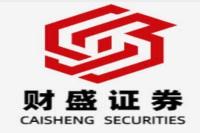RATP Dev Sells London Bus Routes: A Deep Dive into the Deal & Future Implications
Meta Description: RATP Dev sells three London bus routes to FirstGroup for £90 million, focusing on global rail and automated metro projects. Explore the deal's impact on RATP Dev's strategy, FirstGroup's expansion, and the future of London's public transport. #RATPDev #FirstGroup #LondonTransport #PublicTransport #Acquisition
Imagine this: a bustling London street, red double-decker buses weaving through the iconic cityscape. Now picture a significant shift in the ownership of those very buses. That's exactly what's happening as RATP Dev, a subsidiary of the Parisian public transport giant RATP, is offloading three of its London bus routes to FirstGroup, a major player in the UK transport sector. This isn't just a simple business transaction; it's a strategic maneuver with far-reaching consequences for both companies and the future of London's public transport system. This deal, rumored to be worth a cool £90 million, isn't just about money; it's about future-proofing, strategic realignment, and a bold step towards a greener, more efficient public transport landscape. This isn't some fly-by-night operation; we're talking about a meticulously planned move by two industry titans, a move that's sending ripples through the international public transportation world, and we're here to break it all down for you. Get ready to unravel the complexities, explore the potential impacts, and understand why this deal is more than just headlines. We'll delve into the financial intricacies, the strategic reasoning, and the potential long-term effects, providing you with a comprehensive, insightful analysis that goes beyond the surface-level reporting. Buckle up, because this is a journey into the heart of a major international business transaction!
RATP Dev's Strategic Shift: A Focus on Global Rail and Automation
RATP Dev, the international arm of RATP, has been operating in London for years, employing a whopping 3700 people and managing 982 buses, providing a staggering 180 million passenger journeys annually. However, despite this impressive scale, the London operation has been operating at a loss, putting a strain on RATP's overall financial health. This isn't a sudden decision; it's the culmination of ongoing challenges. The post-pandemic period has seen a dramatic spike in energy and labor costs, significantly impacting the profitability of these routes. So, what's the solution? A strategic pivot.
Think of it like this: RATP Dev is streamlining its operations, focusing on its core competencies and areas of future growth. The company's top brass have made it crystal clear that this sale isn't a sign of defeat, but rather a proactive measure designed to enhance long-term sustainability and profitability. The sale of these three bus routes allows RATP Dev to concentrate its resources on projects with a higher potential for return, and that's exactly where they're putting their energy.
RATP Dev's future is firmly planted in rail and automated metro systems. With the expansion of Paris's Line 14 underway, they're already involved in six global automated metro projects, including a significant role in Riyadh's Metro Line 1. They're also eyeing opportunities in France, bidding to take over regional public transport networks. This shift reflects a broader trend in the industry towards automation and the development of more efficient, sustainable transport solutions. It's a forward-thinking strategy that positions RATP Dev for long-term success in a rapidly evolving market. This isn't just about making money; it's about shaping the future of public transport.
The Financial Picture: £90 Million and Beyond
The sale price of £90 million is substantial, representing a significant financial injection for RATP Dev. However, the financial implications extend beyond this immediate influx of cash. By divesting itself of the loss-making London bus routes, RATP Dev eliminates a continuous drain on resources, freeing up capital for investment in its higher-growth areas. It's a move that's both financially sound and strategically astute.
This transaction isn't just about immediate gains; it's about long-term financial stability and growth. RATP Dev isn't simply selling assets; it's optimizing its portfolio to maximize returns. This strategic repositioning allows the company to focus its resources on projects with higher profit potential, ultimately leading to a stronger and more sustainable financial future. It's a calculated risk, but one with significant potential rewards.
FirstGroup's Expansion: Consolidating its Position in the UK Market
For FirstGroup, this acquisition represents a significant expansion of its already considerable footprint in the UK transport market. As the leading player in the UK rail sector and the second-largest bus operator, the addition of these three RATP Dev routes perfectly complements their existing portfolio. It’s a strategic move that strengthens their market position and expands their customer base.
This isn't a knee-jerk reaction; it's a deliberate and calculated step to solidify FirstGroup's dominance in the UK public transport sector. The acquisition aligns perfectly with their long-term goals; it allows them to increase their market share, optimize their operational efficiency, and potentially create synergies between their existing operations and the newly acquired routes. The acquisition is a clear indication of FirstGroup's ambition and confidence in the future of the UK bus market.
Furthermore, FirstGroup has committed to investing in the electrification of these routes, aiming for 100% electric operation by 2030. This demonstrates their commitment to environmental sustainability and aligns with the UK government's ambitious targets for decarbonizing public transport. It's a win-win situation: FirstGroup expands its services, enhances its environmental credentials, and positions itself as a leader in sustainable public transport.
Electrification: A Green Step Forward
The commitment to fully electrify these routes by 2030 is a noteworthy aspect of the deal. Currently, only 34% of the routes are electrified. FirstGroup's pledge to fully electrify these routes by 2030 shows a commitment to environmental responsibility and aligns with global efforts to reduce carbon emissions. This initiative will not only reduce the environmental impact of these bus routes but also enhance their appeal to environmentally conscious passengers. It indicates FirstGroup's understanding of the growing importance of sustainability in public transport and their proactive role in creating a greener future. It's a savvy move that enhances their brand image and positions them as a leader in sustainable transport.
The Future of London's Public Transport
This transaction has implications that extend beyond the two companies involved. The sale of these bus routes signifies a shift in the landscape of London's public transport system. While the change in ownership might be subtle for the average Londoner, the long-term consequences could be significant.
FirstGroup’s focus on electrification is a positive development for London’s commitment to cleaner air and a more sustainable transportation system. This move aligns with the city’s broader goals for reducing carbon emissions and improving air quality. The investment in electric vehicles will contribute to a greener and healthier London.
The deal also highlights the ongoing evolution of the public transport sector, with a clear trend towards consolidation and a focus on efficiency and sustainability. It's a dynamic environment, and this transaction is just one piece of a larger puzzle. The future of London's public transport will likely continue to be shaped by such strategic maneuvers, with a growing emphasis on technological innovation and environmental responsibility. It's an exciting and rapidly evolving field, and we're likely to see more changes in the years to come.
Frequently Asked Questions (FAQs)
Q1: Why is RATP Dev selling its London bus routes?
A1: RATP Dev's London bus operations have been experiencing financial difficulties due to rising energy and labor costs since 2022. The sale allows them to refocus on more profitable ventures in rail and automated metro systems.
Q2: What is FirstGroup's plan for the acquired routes?
A2: FirstGroup plans to invest in the electrification of the routes, aiming for 100% electric operation by 2030. They will also integrate the routes into their existing operations in London.
Q3: Will this affect the service quality for passengers?
A3: FirstGroup has committed to maintaining service quality and investing in improvements. While some changes are possible during the transition, significant disruption is not expected.
Q4: What are the broader implications of this deal for London's public transport?
A4: The deal highlights the ongoing trend towards consolidation and electrification in the public transport sector. It contributes to London’s broader goal of a more sustainable transportation system.
Q5: Will RATP Dev completely withdraw from the UK market?
A5: No, RATP Dev has stated that this transaction is specific to these three bus routes and does not represent a broader withdrawal from the UK or other markets.
Q6: What are the environmental benefits of FirstGroup's plans?
A6: The full electrification of these routes by 2030 will significantly reduce carbon emissions and improve air quality in London, aligning with the city’s sustainability objectives.
Conclusion
The sale of RATP Dev's London bus routes to FirstGroup is more than just a business transaction; it represents a strategic shift for both companies and a significant development for the future of London's public transport system. RATP Dev's focus on global rail and automated metro projects reflects a broader industry trend, while FirstGroup’s acquisition consolidates its position in the UK market and underscores its commitment to sustainability. This deal is a fascinating case study in strategic business decisions, highlighting the complexities and opportunities within the dynamic world of public transportation. The future is electric, and this deal is a significant step in that direction.



